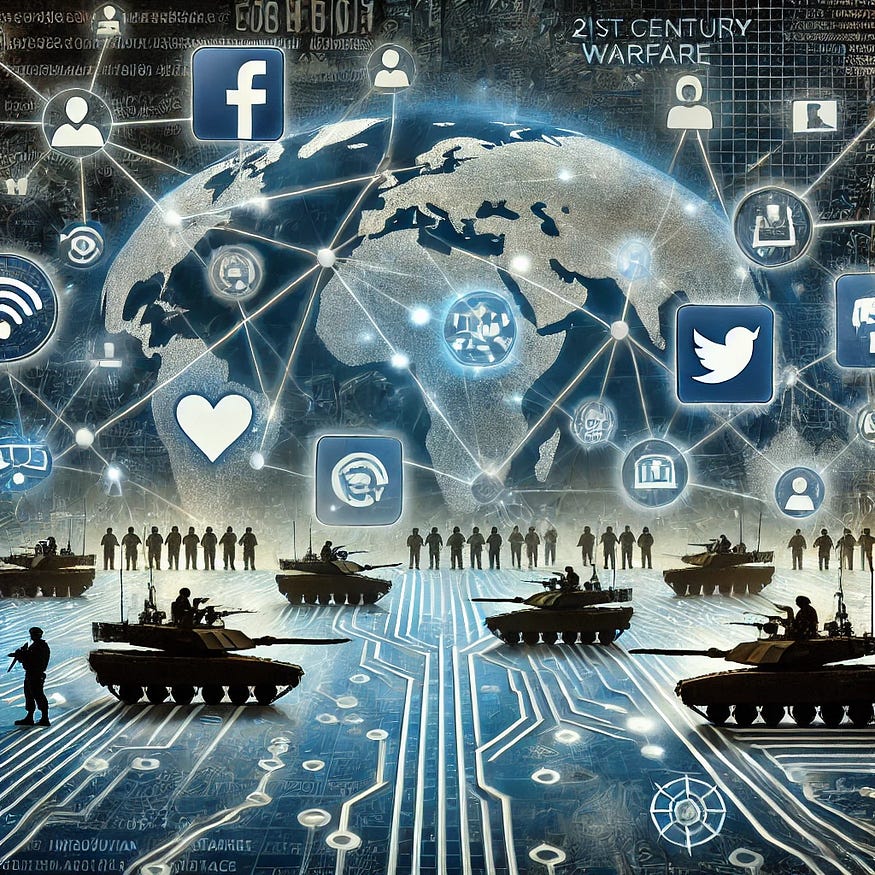What is Information Warfare?
Information warfare refers to the strategic use of information and communication technologies to gain an advantage over adversaries. It encompasses a range of activities designed to manipulate information and influence public opinion, decision-making processes, and the behavior of individuals or groups. Information warfare is often used by state and non-state actors to achieve political, military, economic, or social objectives.
Key Components of Information Warfare
Psychological Operations (PsyOps):
Objective: Influence the perceptions, attitudes, and behaviors of target audiences.
Methods: Disseminating propaganda, rumors, and misinformation to create confusion, fear, or support for specific agendas.
Cyber Warfare:
Objective: Disrupt, disable, or control an adversary’s information systems.
Methods: Hacking, spreading malware, denial-of-service attacks, and data breaches to compromise the integrity and availability of information.
Propaganda and Disinformation:
Objective: Spread false or misleading information to shape public opinion or obscure the truth.
Methods: Creating fake news, doctored images, and videos, and using social media bots to amplify false narratives.
Electronic Warfare:
Objective: Control the electromagnetic spectrum to disrupt or intercept communications.
Methods: Jamming signals, intercepting communications, and using electronic surveillance to gather intelligence.
Influence Operations:
Objective: Affect the decision-making processes of adversaries.
Methods: Targeting key individuals or groups with tailored information to influence their actions or decisions.
Social Media Manipulation:
Objective: Exploit social media platforms to spread information rapidly and widely.
Methods: Using bots, trolls, and fake accounts to create viral content, manipulate trends, and influence public discourse.
Objectives of Information Warfare
Undermine Public Trust:
Erode confidence in institutions, media, and government by spreading misinformation and fostering skepticism.
Influence Elections and Political Processes:
Shape voter perceptions and behavior through targeted propaganda and disinformation campaigns.
Disrupt Military Operations:
Interfere with an adversary’s command and control systems, communications, and decision-making processes.
Economic Disruption:
Target financial systems and markets to create instability and economic uncertainty.
Social Engineering:
Manipulate social dynamics to create division, unrest, or support for specific agendas.
Examples of Information Warfare in Today’s World
Russian Interference in Elections:
Russia’s use of social media, propaganda, and cyber attacks to influence elections in the United States and other Western countries.
Disinformation Campaigns:
State-sponsored actors spreading false information about the COVID-19 pandemic to create confusion and distrust in public health measures.
Hacktivism:
Groups like Anonymous conducting cyber-attacks and releasing information to promote political and social causes.
Deepfakes and Synthetic Media:
The creation of realistic but fake videos and images to deceive and manipulate audiences.
Implications of Information Warfare
Threat to Democracy:
Undermining the integrity of elections and democratic processes by manipulating information and public perception.
National Security Risks:
Disrupting military operations and critical infrastructure through cyber-attacks and electronic warfare.
Social and Political Polarization:
Fostering division and conflict within societies by amplifying extremist views and misinformation.
Economic Instability:
Creating uncertainty in financial markets and disrupting economic activities through targeted cyber-attacks and misinformation.
Erosion of Trust:
Reducing trust in media, government, and institutions by spreading false information and creating confusion.
Conclusion
Information warfare is a complex and evolving threat that leverages modern technology to manipulate information and influence human behavior. It poses significant challenges to national security, democratic governance, and social stability. Understanding and countering information warfare requires a multi-faceted approach, including improving digital literacy, enhancing cybersecurity, and fostering resilience against misinformation and propaganda.


